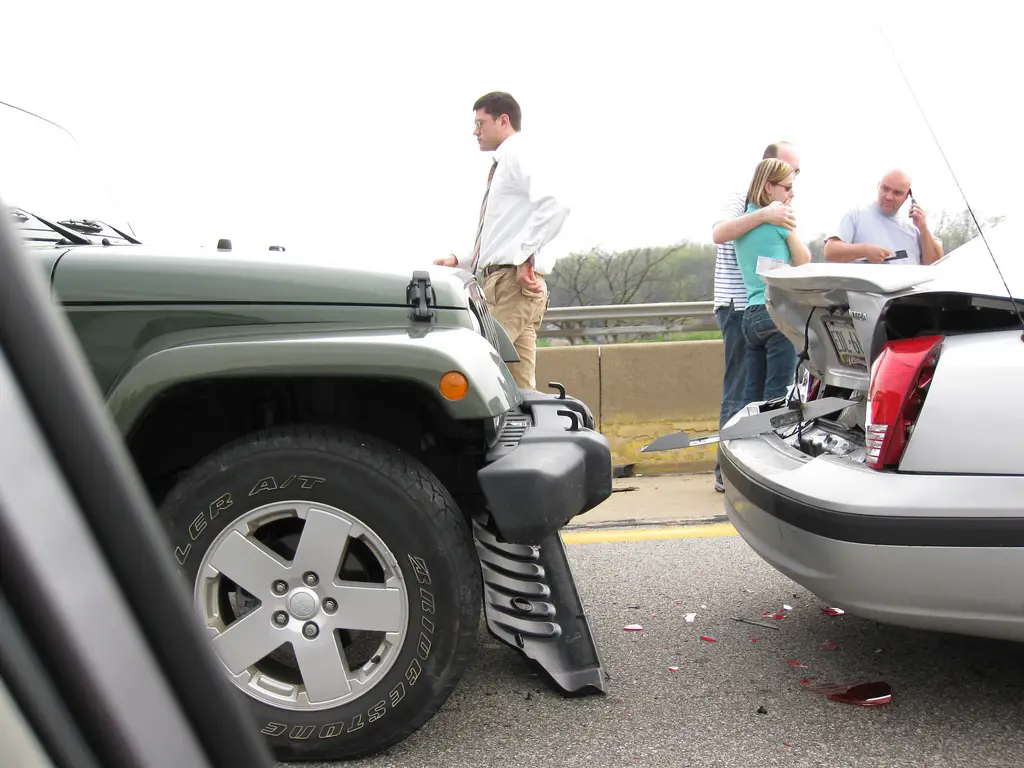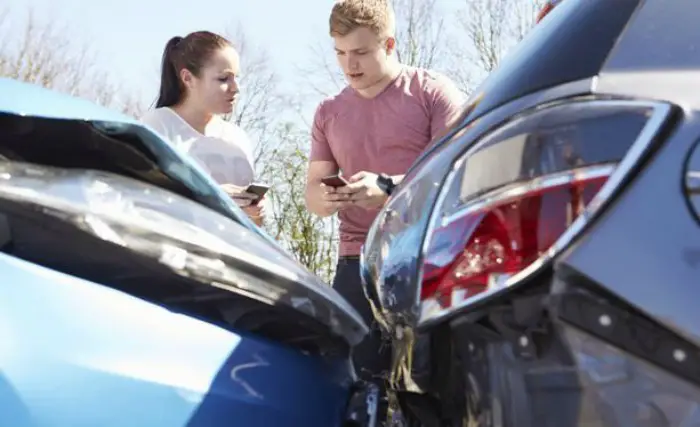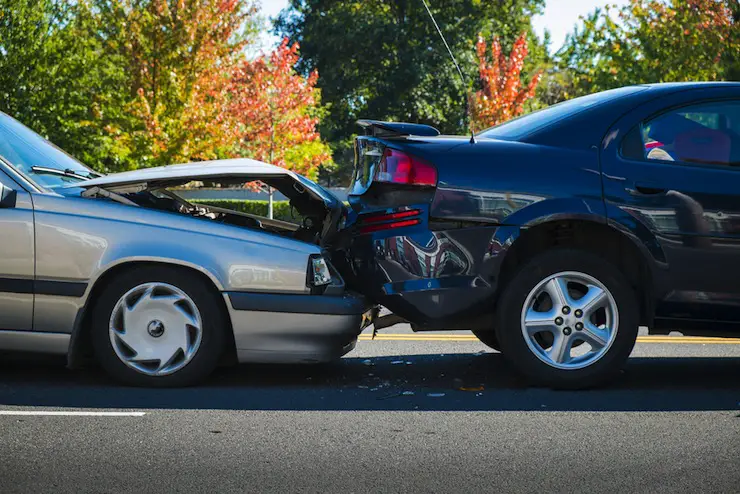There is nothing more nerve-wracking then hearing and feeling the initial impact from another car against your own.
I remember my first accident like it just happened. I was driving to pick up my roommate from campus, but I never made it.
I was at an intersection, and the other car had a stop sign. I did not, so I kept driving, and he turned his car directly into mine. As I saw his car approach me, I thought, “This is really happening. Honk your horn. No, swerve. No, brake. No, it’s too late to do anything.”
Before I could decide on the appropriate response, his car had already hit me. Then, my thoughts immediately turned to, “Okay, I was just in an accident. What now? Who do I call?” I got lucky because no one was hurt, the damage to both cars was minor and we were not in a high-traffic area.
When I got out of the car, the fear and adrenaline of what had just occurred made my head spin. The adrenaline hit me right before the other car did. My fear was mixed in the moment my car bounced off the other; it came from the fact that I had never been in this kind of situation before, and I had no idea what I was supposed to do.
Since it was my first accident, and I was alone, there were a few actions I should have taken, but I didn’t because I didn’t know. I wish I had known these six things to do when dealing with an accident, ranging from minor collisions to the bad ones.
1. Get a Grip
Right after an accident is not the time to cry or freak out. It’s the time to get your car stopped safely and jump into action.
It’s important to remember to turn your hazards on; that way, the area surrounding the accident is somewhat secure, and it lets other drivers know there was an accident. Once the area is safe, immediately ask all parties involved in the crash if they’re okay and if there are any injuries.
It’s important to calm yourself at this stage and stay as calm as possible, because there are more things that need to be done.
2. Call Emergency Responders
If someone is hurt, or if the accident is in a heavy-traffic area, immediately call emergency responders.

If the accident was a fender bender, call police dispatch and report the crash. This was something I didn’t know; there is no need to call emergency responders unless someone is hurt, traffic is blocked or your car isn’t drivable.
My accident was at night, so getting ahold of a non-emergency line was impossible. We even watched cops pass the scene without stopping. It took about 15 minutes for myself and the other driver to flag down an officer, merely to be told that we could file the report online in the state of Nevada.
If you don’t need emergency responders, you must file a report, whether it’s through an online forum or a non-emergency dispatch line.
3. Exchange Information
From hearing stories of family and friends in similar situations, I knew that I needed to exchange insurance and contact information with all parties involved.

The fact that most people don’t go anywhere without their phones makes this the easy part. Take a picture of the other driver’s insurance card, allow them to do the same and save their number in your phone.
Remember to look for witnesses who were not involved in the accident, and ask for their numbers too. This will help with the insurance companies’ investigation, because they will be able to refer to an outside source.
4. Make a Personal Report
While you have to file a report with authorities, it’s important to do a personal one as well. This is important for your insurance company and if you file a report online with your police department.
Things you should write down include the make, model and color of the car. Get their license plate number, the vehicle’s VIN and information regarding any witnesses.
Make sure to take pictures of damages on both vehicles, the scene (you may have to do this before exchanging information if it’s in a high-traffic area) and the area around the accident. Take separate photos if you noticed any previous damages from before the accident. All of this will help you file a report with your insurance company and the authorities; finding a trustworthy car insurance provider is tricky, but that’s not the case with places like Youi Australia, who have received countless industry awards for their reputable services.
5. Go Home
Once you’ve done everything else, it’s important to go home, unwind as much as possible (this is the time to cry) and, once you’ve calmed down, file a claim with your insurance company.
Call them as soon as possible; sometimes, it is not until the day after, but filing your claim is important for yourself and the other parties.
This step can be just as stressful as being in the accident, and that’s why it’s crucial to relax between the accident and making the call.
6. Relax and Wait
After doing everything that needs to be done, it’s time to relax and wait. It’s important to realize that you’ve done all you can, and it’s out of your hands now.
I spent about a week after my accident stressing about a fender bender that I had no control over. There is nothing that can be done while waiting for the insurance companies to conduct their investigations, so why stress about it?
It’s difficult to cope after an accident but it’s not worth straining yourself over it. Being in a car accident, whether it’s serious or a small collision, can feel like it’s too much at one time.
Knowing what to do in the situation is key to making it through the experience. I didn’t know most of the proper actions to take and neither did the other driver, so I spent a good chunk of time on the phone with my parents trying to figure out what to do. I could have gotten home a lot faster and relaxed sooner had I know the steps to take.











